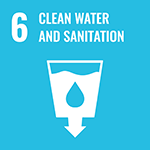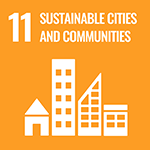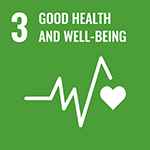Risk-based Participatory WASH Planning and Citizen-data WASH Statistics for African Peri-urban Settlements
Principal Investigator


Dr.
Senior Lecturer, Integrated Water Resource
Kawawa Banda
Management Centre, University of Zambia
ODA Recipient Country
Republic of Zambia
Research Institutions in Japan
Kyoto University / Tohoku University / Hokkaido University
Research Institutions in Counterpart Country
University of Zambia / Lusaka City Council – Department of Public Health / Lusaka Water Supply and Sanitation Company
Adoption fiscal year
FY 2023
Research Period
5 Years
Overview of the Research Project
Participative visualization of diarrhea risk to design your own WASH plan
Cholera outbreaks sporadically occur in low-income areas of peri-urban Lusaka, the capital of Zambia. People own cell phones but not sanitary lavatories. Water, sanitation and hygiene are not simply an issue of money, but of prioritization. Supported by an app to be developed under the project, residents themselves will examine the contamination around them and visualize the risk of diarrhea. By “experiencing” potential risks rather than “being taught” about these, residents will be better able to design their own remedial measures and implement them proactively.
The prevention of diarrhea and cholera in African urban slums with poor sanitation
By having residents design risk-based improvement plans by themselves and practicing improvement activities based on their actual experience, contamination of water and food and outbreaks of diarrhea and cholera can be prevented, leading to the realization of a healthier and more hygienic way of life. The project will create a new type of practical science to solve serious social problems by combining citizen science with advanced science.
Photo gallery
Research Project Web site
Press Release
Links
Projects
Contact Us
Japan Science and Technology Agency (JST)
Department of International Affairs
SATREPS Group
TEL : +81-3-5214-8085
Related articles by Category
- Global-scale environmental issues
Environment / Energy
(Global-scale environmental issues)
 Republic of Kazakhstan
Republic of Kazakhstan
Aim for zero pollution by digitizing mines with “Smart Mining Plus”!
Next-generation Smart Mining Plus for Sustainable Resources Development
- Zambia
Bioresources

 Republic of Zambia
Republic of Zambia
Collaboration Between Farmers and Scientists Enables Rapid Development and Dissemination of Rice Varieties!
The Establishment of an Immediate Rice Variety Development System using Anther Culture and Citizen Science
- Africa
Environment / Energy
(Global-scale environmental issues)
 Arab Republic of Egypt
Arab Republic of Egypt
Contributing to the reduction of marine plastic litter and the establishment of a circular economy!
Utilization of Agricultural Wastes for Plastic Alternatives Productions to Establish a Circular Economy
- SDGs : Goal.6
Environment / Energy
(Global-scale environmental issues)
 Arab Republic of Egypt
Arab Republic of Egypt
Enabling community-wide conservation of the water and land that support life in an oasis!
Securing the Sustainability of Oasis Societies Associated with Water and Land Use in the Western Desert






















